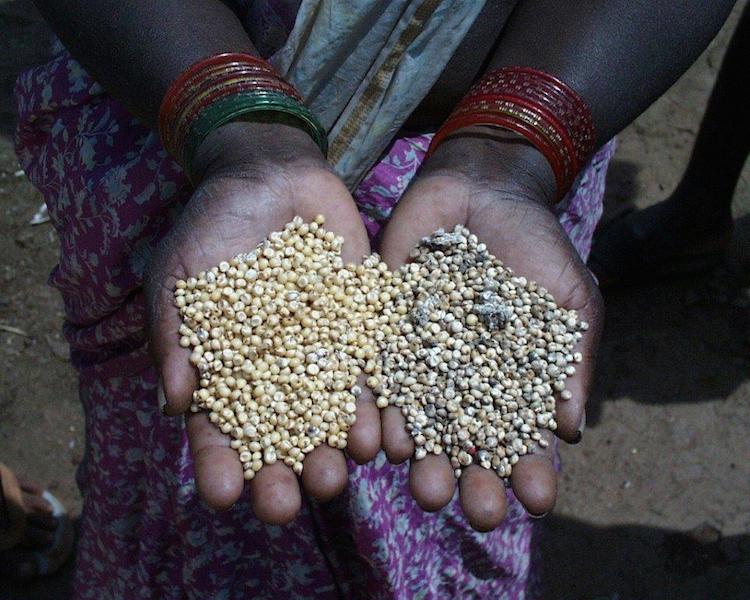
In the Parliamentary Report entitled, 'Missing Food', published today, Parliamentarians of the All-Party Parliamentary Group (APPG) on Agriculture and Food for Development are calling on all governments and donors to urgently scale up and better coordinate efforts to reduce postharvest losses and food waste.
"Food losses along the postharvest chain have an impact on food and nutritional security, farmer livelihoods, natural resource consumption and agricultural sustainability. It is abundantly clear that measures must be taken at all levels and by all actors if the amount of food lost between field and fork is to be reduced." Missing Food Report, APPG on Agriculture and Food for Development.
A third of food produced for human consumption globally is lost. At the same time the world will need about 50% more food by 2030. In Africa smallholder farmers produce more than 80% of food, but at the same time account for 50% of the food insecure. In developing countries losses of weight and quality accumulate along the postharvest chain, due in part to poor infrastructure. It is estimated that 14% of grains, and a considerably higher percentage of fruit and vegetables, are lost. Grain losses in sub-Saharan Africa alone translate into over $4 billion lost per year. Developed countries have much higher losses at the consumption level, where retailers and consumers waste food.
Through a series of seminars, the APPG heard that a multipronged approach is essential to reduce postharvest losses. Professor Rick Hodges and Dr Debbie Rees from the Natural Resources Institute of the University of Greenwich made presentations at the seminars.
The report stresses the crucial importance of building the capacity of smallholder farmers in postharvest management so that crops are collected at the appropriate time, produce is not contaminated with soil, crops are dried correctly to reduce moisture for safe storage and measures are taken to reduce susceptibility to pests.
The report's recommendations come at a time when governments are considering the Sustainable Development Goals and the successor framework to the Millennium Development Goals. The 'Missing Food' Report highlights that the scale of the problem requires more effective global political leadership and commitment. Equally, strengthening the data and means of measuring progress will be critical for understanding the tangible impact of any goals on reducing losses or waste of food.
Lord Cameron of Dillington, Chair of the APPG on Agriculture and Food for Development, stated that, "The amount of hunger and malnutrition in Sub Saharan Africa could be seriously reduced if politicians and all involved in the food chain focused equally on wasting less as much as on growing more."
Professor Rick Hodges, Grain Postharvest Management Specialist at NRI said, "the food crisis of the 1970s led us to implement loss reduction programmes as an approach to increasing food availability but the effort was not sustained in a climate of falling food prices. This has changed; the new food crisis is with us for the medium- to long-term and presents a great opportunity to improve the efficiency of resource utilisation. This can be done by developing systematic ways to identify and implement good opportunities to reduce food losses, by capturing our successes using detailed monitoring and evaluation and then by replicating these successes."
The Department for International Development has a number of agricultural research programmes, which have components or sub-projects looking at postharvest losses. However, the APPG emphasises that the scale of the problem demands a more substantial and coherent approach from all donors and governments.
The report can be accessed here.
For further information about NRI's work on post-harvest losses, please see here: https://www.nri.org/research/postharvest-science-and-technology/background

